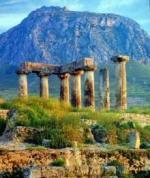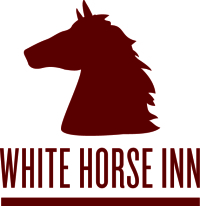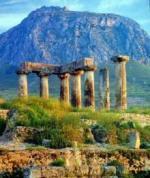The OC -- A New Burned-Over District? Part One -- The "Buzz"
 Tuesday, July 2, 2013 at 08:54AM
Tuesday, July 2, 2013 at 08:54AM I am certain that my family owned and operated the only Christian Bookstore in an amusement park (Knott's Berry Farm). The photo above is of my dad (Clayton) and was taken when our bookstore was newly remodeled in 1967. If you ever visited Knott's back in the day, and can recall the displays of the California missions in what was then Fiesta Village, you'll understand why our store looked like a California mission. It was a California history thing, not a papal thing.
I grew up in this strange world of Christian retail, and I have long since repented of supplying too many families and churches with Warner Sallman's awful "Head of Christ" painting. If your grandma lived in Southern California (or visited Knott's), and had on her wall the picture of the old man praying over his bread, or the gleaners in the field giving thanks for the harvest, chances are she bought it from us.
I begin with our family's bookstore (the Inspiration House), because the first time I encountered the Christian "buzz" so typical of the OC in the late 60's through the mid 90's was the first "Maranatha Night" at Knott's. I don't remember the year (1971?), but my dad had died in 1969 of a sudden heart attack at age 50, and my mom took over the business. Darrell Anderson (one of the younger and hipper members of the Knott family) had recently become a Christian while attending a "Jesus People" church, which I later came to know as Calvary Chapel.
 Anderson had what he thought was a great idea--to have a special "Christian themed" event at Knott's. It was arranged for some of the new bands which played at Calvary Chapel and elsewhere (Love Song, Children of the Day, and then later on Mustard Seed Faith, Sweet Comfort, etc.) to play the various music venues throughout Knott's. Better still, our family's bookstore could sell their records (the fledgling Maranatha music label was just getting started, and generated a buzz far greater than folks like George Beverly Shea or the Gaithers) along with the accouterments which the Jesus People just loved--leather Bible covers (with the ichthus or Maranatha dove), Christian tee-shirts (with Bible verses or clever "witnessing" slogans), and all sorts of religious trinkets.
Anderson had what he thought was a great idea--to have a special "Christian themed" event at Knott's. It was arranged for some of the new bands which played at Calvary Chapel and elsewhere (Love Song, Children of the Day, and then later on Mustard Seed Faith, Sweet Comfort, etc.) to play the various music venues throughout Knott's. Better still, our family's bookstore could sell their records (the fledgling Maranatha music label was just getting started, and generated a buzz far greater than folks like George Beverly Shea or the Gaithers) along with the accouterments which the Jesus People just loved--leather Bible covers (with the ichthus or Maranatha dove), Christian tee-shirts (with Bible verses or clever "witnessing" slogans), and all sorts of religious trinkets.
Knott's first "Love Song" festival packed out with some 25,000 mostly young people who loved Jesus and were truly excited about their faith. Our shelves were soon empty, and we found the Jesus People to be a breath of fresh-air, compared to the stodgy blue-hairs and matronly Sunday School teachers who usually shopped in Christian bookstores. After the first "Maranatha Night," sheet music and greeting cards were no longer among our best-selling items. Bibles, praise music, and tee-shirt sales were off the chart. But we also sold many more commentaries and theology texts (we carried a few--mostly dispensational stuff).
I recall my mom telling me how this caught her completely off-guard. These freaky Jesus People were truly excited about their faith in Christ. They knew their Bibles. They were kind and patient while waiting in line despite the fact our small store couldn't handle them all. Many had remarkable testimonies about deliverance from all kinds of drug addiction and their previous fascination with the Eastern religions which dominated hippy culture. I'm not big on the term "revival" because of my understanding of the Bible's stress on the ordinary means of grace (word and sacrament). But this was a remarkable time however you attempt to understand it. I'm still not sure what to think of it, or what to call it.
Maranatha Night was my first real encounter with the new Christian "buzz" spreading all over the OC. I had been raised in the Grace Brethren and then the Evangelical Free Church--if you know anything about Orange County, you know how much influence Chuck Swindoll and the Evangelical Free Church of Fullerton exercised upon the OC's evangelicals--it was huge.
But the influx of the Jesus People changed everything. Everywhere you went, it seemed, people were talking about the Christian faith. Before long, it was not just the Jesus People, it was successful businessmen (like Darrell Anderson of the Knott family), it was people in line in the grocery store, there were Christian bumper stickers on countless cars (many purchased from us), and there was the rise of a Christian media (radio at first), along with a distinct Christian sub-culture. You couldn't escape it. My non-Christian friends (among the few who were not converted during this time) hated it.
In Christian circles and Bible studies, people debated among themselves the role of the gifts of the Spirit, and the ill (or good, depending upon which side you were on) effects of the charismatic movement. It really mattered whether you were "pre-trib" or "post." Hal Lindsey was must reading. But so was Josh McDowell's Evidence that Demands a Verdict. And as things progressed, it became increasingly important to identify yourself with one (or more) of the various elements (not yet "factions") within the evangelical subculture. If you were Charismatic or Pentecostal, you went to Melodyland (the theater in the round, turned church, across from Disneyland). If you preferred the new "praise music" to traditional hymns, and if you liked the laid-back Jesus People atmosphere, you went to Calvary Chapel. If you wanted the Calvary Chapel style but with a focus on signs and wonders, you went to the Vineyard (a 1977 offshoot of Calvary). If you wanted serious Bible teaching you went to Chuck Swindoll's church, or even to one of Calvary Chapel's mid-week studies. And you just had to listen to the "Bible Answer Man" on Saturday night, because you knew that Walter Martin's clobbering an LDS stake president or some poor JW attempting to defend Arianism was going to be discussed at church the next morning.
This is what I mean by the Christian buzz.
But beneath the surface, the same ills plaguing the Corinthians in the mid-fifties of the first century, were beginning to manifest themselves. Christians were drawn to Christian celebrities and celebrity preachers, and to a distinctly evangelical sub-culture which was able to provide them with every style of music, clothing, image and self-identity you can imagine. Christian bookstores (like Maranatha Village) popped up everywhere, selling the various badges and symbols of the subculture, and a few books as well. It became "cool" to be a Christian and identify with the buzz. As Ken Myers so aptly put it, you were of the world (because you baptized worldly methods), but you were no longer "in the world" because you had your own Christian sub-culture. The seeds of the buzz's destruction were already sown.
If you wanted in on the buzz, you had to identify with these sub-groups. As exciting and attractive as it was, none of this evangelical sub-culture was connected to the historic creeds and confessions of the church, the church's liturgy and sacraments, or to the responsibilities of church membership and discipline. Those who participated in the buzz were consumers (not churchmen), eager, ready, and willing to go wherever you could find the buzz. The buzz was always tied to the newest celebrity convert, doctrinal controversy, or the latest "move of the Spirit." You could keep up with the buzz, but still never be connected to a church. I joined EV-Free (as the Fullerton EFCA was known), attended faithfully for several years, but never once actually met or talked to Pastor Swindoll. The church was too big and the reality was Swindoll did need to be protected from both groupies and kooks--the reason for his isolation from people on Sundays. I didn't expect anything else, and didn't see this as out of the ordinary.
 The very nature of the this sub-culture is the reason why the buzz is now gone. Ironically, it was one Charles Grandison Finney who first spoke of a "burned over district." Finney was speaking of a region in the state of New York in which previous and repeated revivals had left the people cold-hearted and disinterested in religion. In other words, his "new methods" no longer worked there. The region was "burned over."
The very nature of the this sub-culture is the reason why the buzz is now gone. Ironically, it was one Charles Grandison Finney who first spoke of a "burned over district." Finney was speaking of a region in the state of New York in which previous and repeated revivals had left the people cold-hearted and disinterested in religion. In other words, his "new methods" no longer worked there. The region was "burned over."
While the changing demographics of the OC (as discussed in my previous post--Click Here) provide the most obvious reason for the decline in the Christian buzz, it is also true that such a buzz inevitably runs its course and then finally peters out. In many ways, the OC is nothing but a new burned-over district. The buzz cannot be sustained. The Christian bookstores are gone. CCM has run its course. The Christian-themed events are gone--with the notable exception of Greg Laurie's Harvest Crusade (which is now a kind of a family reunion for Calvary Chapel folk). The megachurches are still here, but the buzz they once generated is long gone. There can only be so many "new" ministries, celebrities, and passing fads before the whole thing becomes wearisome if not old hat. Rick Warren's "deeds not creeds" plays much better in such a burned-over place, than does "creeds and then deeds." Although he is the latest in this long line of buzz generators, Warren is also quite likely the last.
Next time, we'll take up the "Pentecostal follies" which occurred nightly on TBN. Love `em or not, Paul and Jan created quite a buzz, and you cannot talk about the evangelical sub-culture in the OC without discussing the "Praise the Lord" television program--an OC staple (Click Here).








